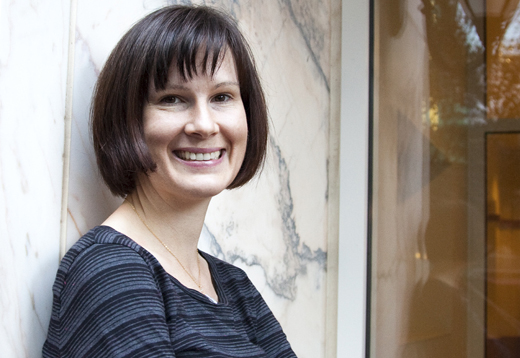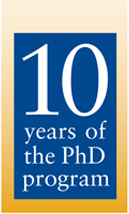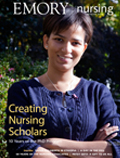Global science: saving mothers and infants

A decade-old program takes on the U.S. shortage of doctorally prepared nurses.
by Sylvia Wrobel
|
Getting down to research: from BSN to PhD |
Joyce Edmonds never thought much about whether she would major in nursing in college. It was almost a family tradition. But 10 years after graduating, ready to apply to doctoral programs, she was torn between nursing and public health. Her short but intense career had straddled both.
After receiving her BSN from Florida State University in 1998, Edmonds completed a U.S. Public Health Service internship in which she screened female inmates for TB and HIV before and after they were released. The experience changed her world view and helped shape her career path. Some women had been imprisoned for 20 years. They might be healthy now but sex was on their mind, and there was little doubt they were returning to a riskier world than the one they had left. Edmonds became an advocate for prevention and maternal and child health, leading her to the MPH program at Oregon Health & Science University.
Her dual life had begun. She studied public health and community policy by day and worked as a medical-surgical nurse by night to pay tuition. After graduating in 2000, Edmonds worked four years with Oregon State University’s maternal and child visiting program as a public health nurse and program manager for high-risk infants.
“I did the whole nine yards—case management, developmental and parenting issues, coaching moms about their own health and the health of their infants,” she says. “I worked directly with parents and babies, but I also became more and more involved in the question of how one makes the argument that nurse home visits are effective and deserve funding. It always came down to data and evidence.”
She realized she needed a research-oriented PhD. But should she specialize in nursing or public health? She applied to schools in both fields, but Emory’s School of Nursing resonated with her most. First, it was grounded in the experience of the individual. Second, she liked how the faculty approached health and illness from a feminine standpoint. Third, she loved the idea of empowering women—including nurses—to realize their potential.
So in 2004, Edmonds entered the school’s PhD program, convinced that it would provide training in the rigorous methodology she needed to make effective evidence-based decisions and use that evidence to argue for women’s and children’s health.
The program has done that and more. It prepared her as a scientist, while giving her room to complete her certification in public health and in advanced practice public heath nursing. The “enormous gift” she did not expect was to become involved with international women’s heath. Prior to Emory, she had focused on maternal and child health in underserved populations in the United States. Through her doctoral adviser, midwife and anthropologist Lynn Sibley, Edmonds began to see women’s health from a global perspective.
As a result, Edmonds spent several months in Bangladesh, working alongside cultural anthropologists and studying the social networks that women use to decide whether to give birth at home or in a health care facility—a decision that affects their health and that of their babies. In the areas of Bangladesh where she worked, women had access to good care, but many chose not to use it because of social and family factors. Edmonds became the school’s first predoctoral fellow to receive NIH funding for international health research. She was awarded the funding based on her argument that what she learned at the international level about how women made health decisions could be translated to the domestic arena.
Edmonds will defend her dissertation this spring on safe motherhood in Bangladesh. She commutes between Emory and Boston, where the Emory MD/PhD student she married is completing his medical residency. When both finish their studies next spring, they will face the dual-career questions of balancing family and work. But she is certain she can combine those demands just as she plans to always combine nursing and public health.
“I value my educational experience at Emory,” says Edmonds. “I hope to continue to grow and learn, build my career, and start giving back. I want to become more involved in community and apply what I have learned.”
Atlanta freelancer Sylvia Wrobel is a frequent contributor to Emory’s health sciences publications.



